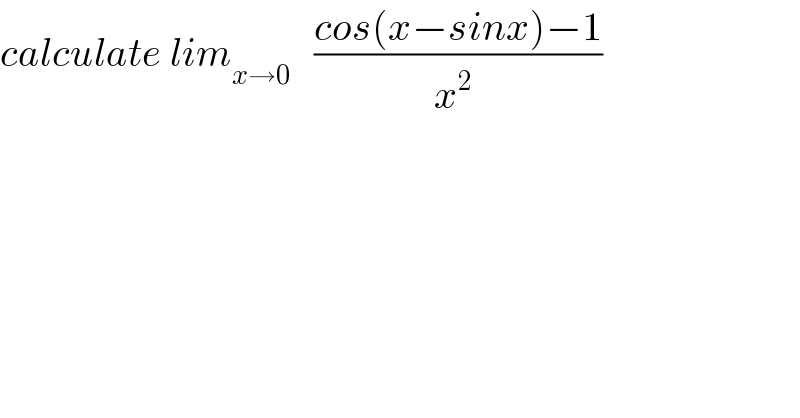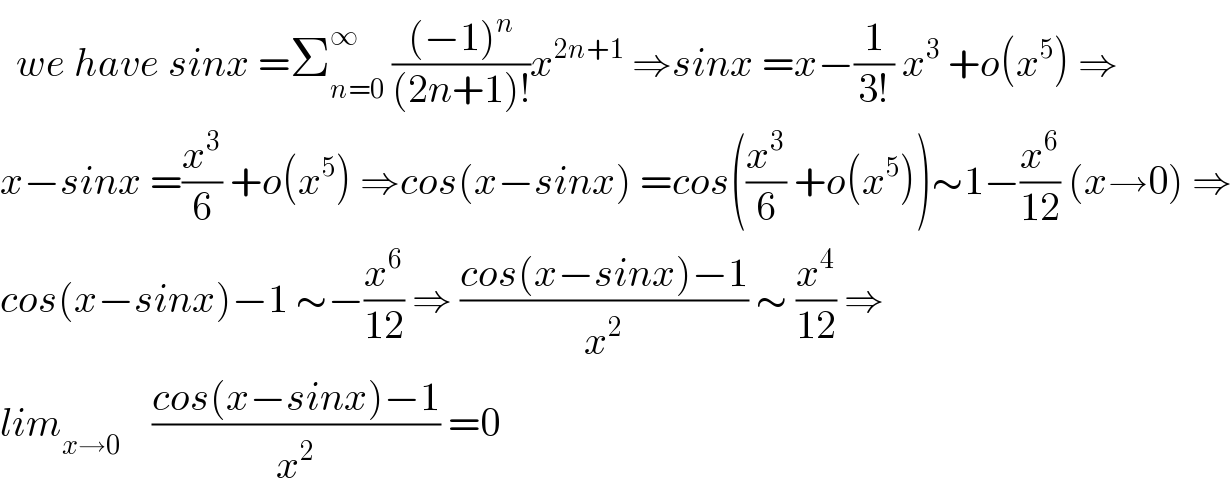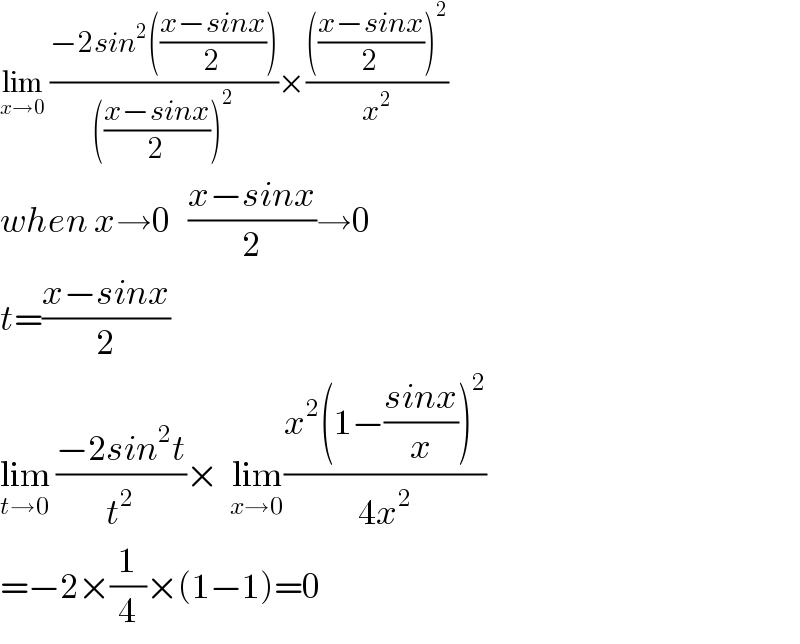
Question and Answers Forum
Question Number 40709 by math khazana by abdo last updated on 26/Jul/18

Commented by maxmathsup by imad last updated on 26/Jul/18

Answered by tanmay.chaudhury50@gmail.com last updated on 27/Jul/18

| ||
Question and Answers Forum | ||
Question Number 40709 by math khazana by abdo last updated on 26/Jul/18 | ||
 | ||
Commented by maxmathsup by imad last updated on 26/Jul/18 | ||
 | ||
Answered by tanmay.chaudhury50@gmail.com last updated on 27/Jul/18 | ||
 | ||
| ||